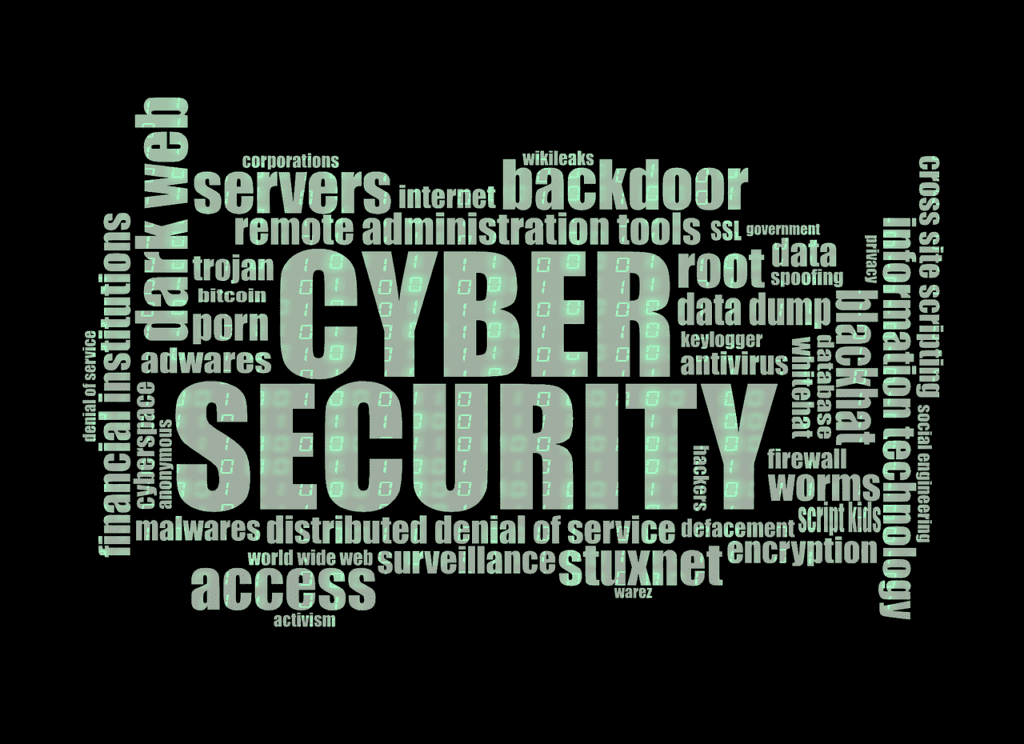
Browsing through the digital world securely is a necessity that no one should take lightly. Computer security vulnerabilities can jeopardise your sense of privacy. Any defects in the security of your system can lead to undesired consequences, including exploiting your sensitive information and private data.
It is essential to keep yourself protected against threats and privacy breach that cyber criminals practice every day. Applying the needed measures will keep your data safely tucked away from the cyber criminals.
However, the presence of the slightest computer security vulnerabilities could serve as a backdoor to hackers. It is important to keep yourself acquainted with the common computer security vulnerabilities and weaknesses that allow criminals to slide into your systems and network.
What is Computer Security?

Computer security is a form of cybersecurity and the practice of keeping your device safe by securing its hardware and software technologies. It is the act of protecting the system from being hacked or damaged by cyber criminals. Computer security is also responsible for keeping the device from being damaged or disrupted.
The necessity of computer security lies in enabling users to use the device and save their confidential data. Thus, it is important that everyone learns enough about it to avoid major operational issues. Besides, in order to keep your device secured, you need to make sure you detect any computer security vulnerabilities.
Computer security vulnerabilities can be a little different from cyber threats in terms of how they can damage your security. In other words, those weaknesses are ones that already exist on your device rather than a damage that an outsider exerted some effort to cause. However, those vulnerabilities can be an access leverage into your system.
Most Common Computer Security Vulnerabilities
The world is swiftly going toward digitisation, so our secrets and personal data have become all present in the virtual world. With the cybercrimes growing bigger and stronger every day, there has become ways to damage the security of a device by exploiting the existing weakness.
Computer security vulnerabilities are the flaws found in a system, weakening all layers of protection and making the device prone to cybercrimes and hacking. These vulnerabilities can be found in any part of the system, whether the information system, the processors, internal controls, or even the wireless network your machine is connected to.
Issues with the Operating System
Computer security vulnerabilities include the weaknesses found within the operating system of your machine. Hackers have developed strong skills to detect the bugs left unfixed in specific operating systems and exploit them to their own advantage. One of the ways to avoid being a victim to this kind of vulnerability is by making sure your machine is always updated and run error tests on your hardware regularly.
Unsecured Wi-Fi Network
There is a reason that public wi-fi networks can jeopardise the safety and security of user’s confidential data and that they are always unsecured. Wi-fi networks, either public or personal ones, that are left without high security can lead to detrimental consequences. It is one of the biggest computer security vulnerabilities that allow cyber criminals to act as a third-party invader and grant themselves access into your system or network, causing serious damages.
Outdated Software
Software updates need to be installed regularly. Skipping this step can do you more than harm than good in ways you may not be aware of. Each software update comes with new bug fixes and adjustments in current computer security vulnerabilities. When you keep going with an outdated software, you leave an open door to hackers and criminals to get into your system, infecting it and causing serious troubles.
Poor Data Encryption
Data encryption keeps your identity and IP address anonymous to potential hackers, giving a wide berth to chances of launching attacks. It is one of the most threatening computer security vulnerabilities that can jeopardise one’s sense of privacy or put large organisations in severe risks with irreversible damages.
Hidden Backdoor Programs
Before installing any programs or applications on your device, you need to make sure it’s a credible one that comes from trusted sources. One of the methods that attackers use to launch their malicious attacks is intentionally creating computer programs or softwares that give them access into the system when it’s installed. These deceptive programs that enable access usually go by the term “backdoor,” and they’re some of the highly threatening computer security vulnerabilities.
Human Errors
Ironically, man is his own worst enemy that the errors resulting from human beings are deemed among the computer security vulnerabilities. Lack of knowledge can put your system and confidential data at great risk. Many attackers target the weakest link in a firm, for example, by sending phishing emails, persuading the victim to download an attachment or open a link that carries a malicious code. Once they click, the hackers get access into the private network, exploiting its resources.
Successful Ways to Fix these Computer Security Vulnerabilities

Computer security vulnerabilities can leave your system and data exposed to hacking, theft, or doxxing, which are all cyber crimes that need to be halted. Unfortunately, there are no legal actions that can be taken against every cyber crime, which is a greater reason to be ready to protect yourself against potential hackers.
Luckily, all of the computer security vulnerabilities are fixable. Everything you need is to build a sturdy layer of protection to keep your data and information tucked away from any potential threats. Check out these tips that will help reduce any computer security vulnerabilities or fix them altogether.
- Update the Operating System
Every new operating system comes with its fair share of bug fixes and stronger security tools. Leaving your device operating on an outdated software is one of the most dangerous computer security vulnerabilities. Old softwares possess lots of weak entry points that cyber criminals will leverage to exploit for their own interest.
Most devices, whether computers, cellphones, or tablets, automatically notify the users when there is a new update. Unfortunately, lots of people tend to ignore this message for a long time, insisting on clicking the “Install later” button, unaware of the great dangers they are placing themselves at. This is one of the computer security vulnerabilities that you need to act on right away.
Updated softwares mean less flaws and bugs in your system, which consequently means an enhanced level of security. Besides keeping the criminals at bay, regular updates allow you to enjoy the latest features and recent advancements for a better experience.
2. Beware of What You Download
Fake ads marketing for specific programs or applications are not to be taken lightly. Unfortunately, lots of people let their curiosity lead them to downloading applications or programs that they have no idea what their sources are. In fact, some of these applications act as a virtual spy. They go by the term “Hidden Backdoor Programs.”
Hidden backdoor apps are ones that hide themselves upon downloading. They secretly give any potential attackers or hackers a backdoor access into your system. It is deemed one of the most common computer security vulnerabilities, for the threat rather exist within the device itself than come from an external element.
So, in order to avoid adding flaws and weaknesses into your system, beware of what you download. Make sure the application you are getting is the original one and comes from a trusted source. Educate yourself on how to scrutinise the details before welcoming anything into your computer.
3. Install an Antivirus Software Program
You may be wise and know how to use your computer to avoid crossing paths with unwanted damages. However, does that make your computer not prone to security breaches? Of course not. In fact, you need more than just your wit to make sure you’re immediately fixing your computer security vulnerabilities and not jeopardising your security.
Antivirus software programs play a great role in adding an extra layer of protection where there is a presence of some computer security vulnerabilities, especially viruses and other malware. Their role is to detect the existence of malicious codes and work on getting rid of them in the fastest and most efficient way possible.
In fact, some malicious softwares and viruses infect your computer and run silently, causing severe damages. It may be a little too late when you start noticing that your device is performing slower than usual or some of your data and important files have been corrupted. For that very reason, which we believe is a crucial one, you need to install a good antivirus program to protect your computer.
4. Use A Secured WiFi Network
WiFi networks have made lives much easier, faster, and simpler. We no longer need the long and big cables that take so much space in order to connect to the internet when the wireless networks have taken over. Yet, pretty much like everything else, they happen to have their own downside and disadvantages.
A Wireless connection can be one of the threatening computer security vulnerabilities. Hackers and unauthorised users can find a way to get access into your wifi and steal all of your private data and confidential information.Thus, it is really crucial that you secure your wifi network to prevent uninvited parties to crash into your system.
Things can get a little bit more challenging when it comes to using public networks. Connecting your computer to a public network in a cafe or restaurant is even more threatening to your privacy, for they are not secured, which means they enable hackers to track your IP address and invade your system.
To prevent this unfortunate event from happening, you should use a VPN (Virtual Private Network). The VPN masks your online identity and makes it anonymous to the third-party invaders. It also relocate your IP address, which may seem as if you are connected from even a different country. Thus, make sure you strongly secure your home network and never use a public one without a VPN.
5. Educate Other Users
Deceptive emails and spams have been around ever since the whole internet was brought into being. Downloading attachments or clicking on links that don’t seem to be from a trusted source can put your security in jeopardy. This doesn’t only apply to you; it applies to every use who connects to your very same network.
Whether you are a business owner or a parent, you need to make sure your employees or family members are aware of the dangers of the internet. Human errors is actually deemed to be one of the biggest computer security vulnerabilities. So, train your people to double check before opening any unknown links coming from anonymous sources.
6. Limit the Access of Users
Definitely, as a business owner, the risk is even higher when you have hundreds of users working on the same network. Some attackers take their time to learn about the weakest link in your firm before they start picking up their target.
In worse cases, the hacker may even be an insider who may leak confidential information about your organisation, risking your financial information as well as your clients’. Make sure you limit the users who are granted access into sensitive data. Learn about the person you’re hiring in that position and make sure they are trustworthy.
The internet is an undeniably advanced element in the digital world. Its importance has grown bigger throughout the years, yet it still comes with its fair share of pitfalls and drawbacks. Now that you have known all the computer security vulnerabilities that can put you at great risk, it is time that you apply the best practices and measures to protect the privacy of your own, the ones you care about, and your own business as well.
